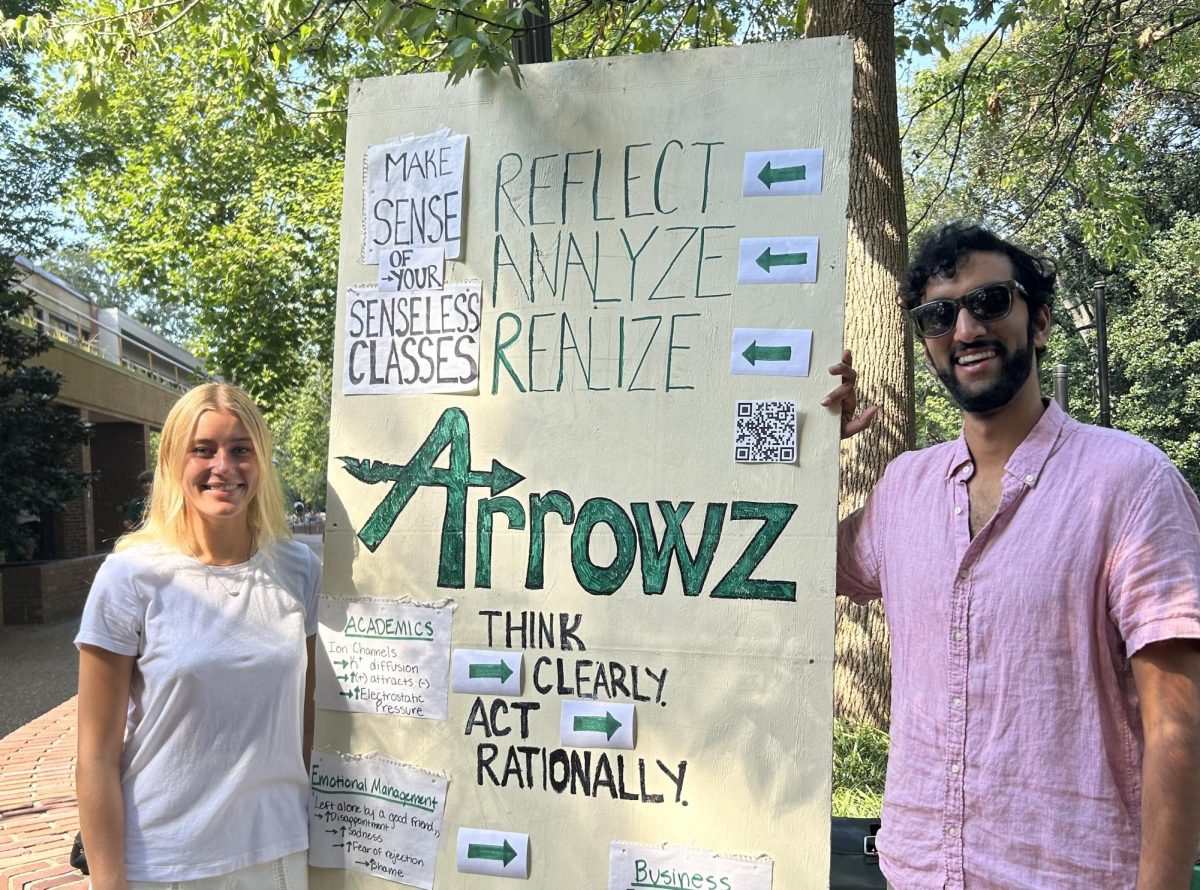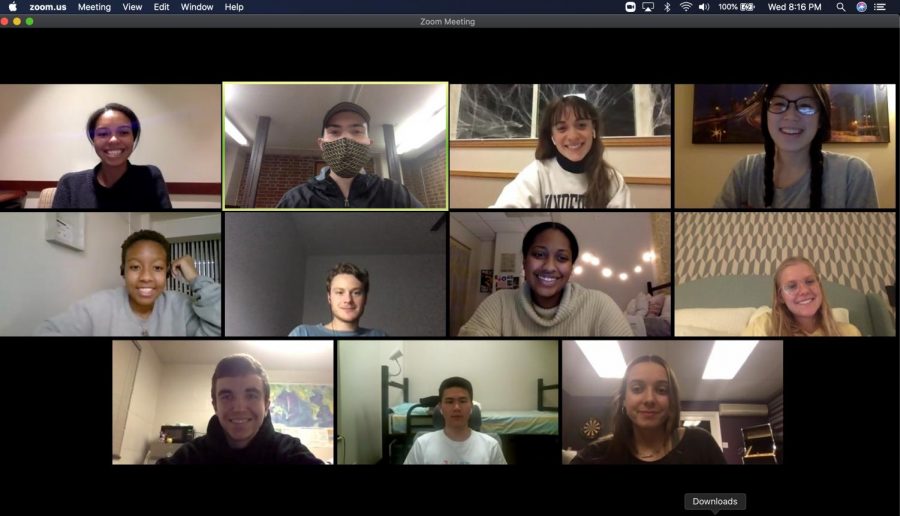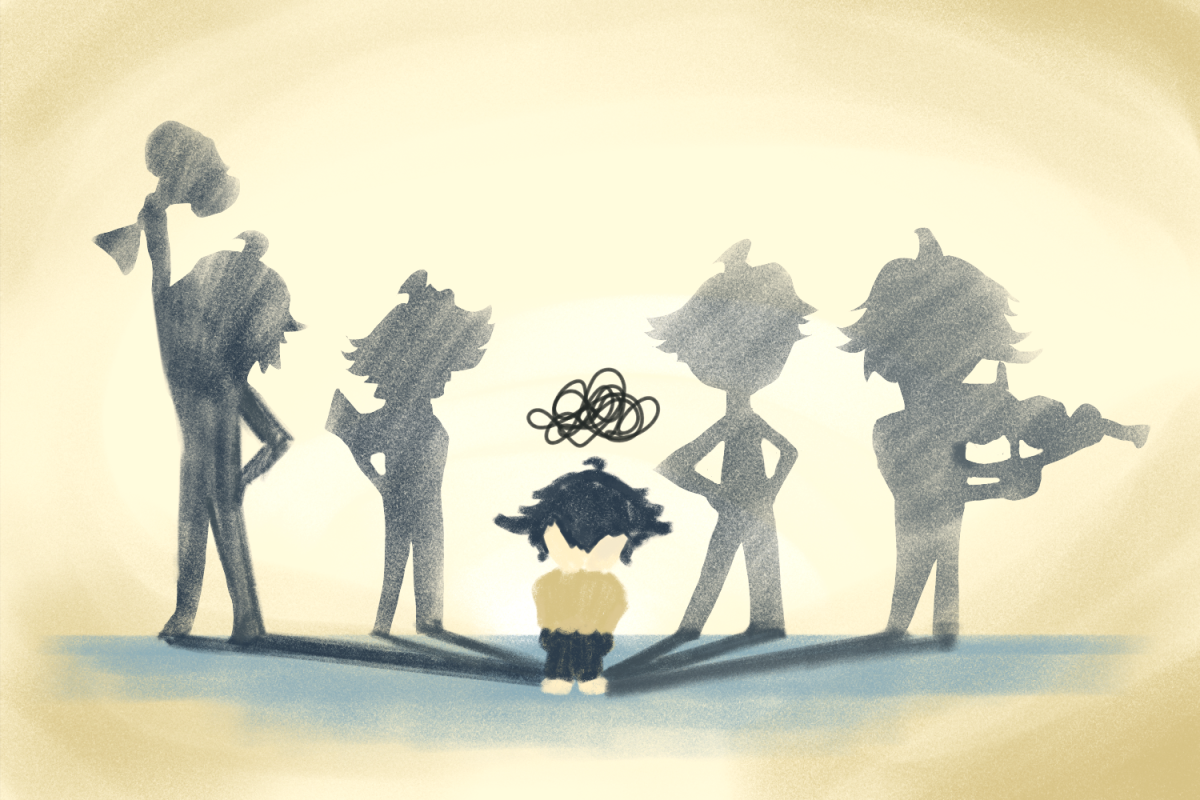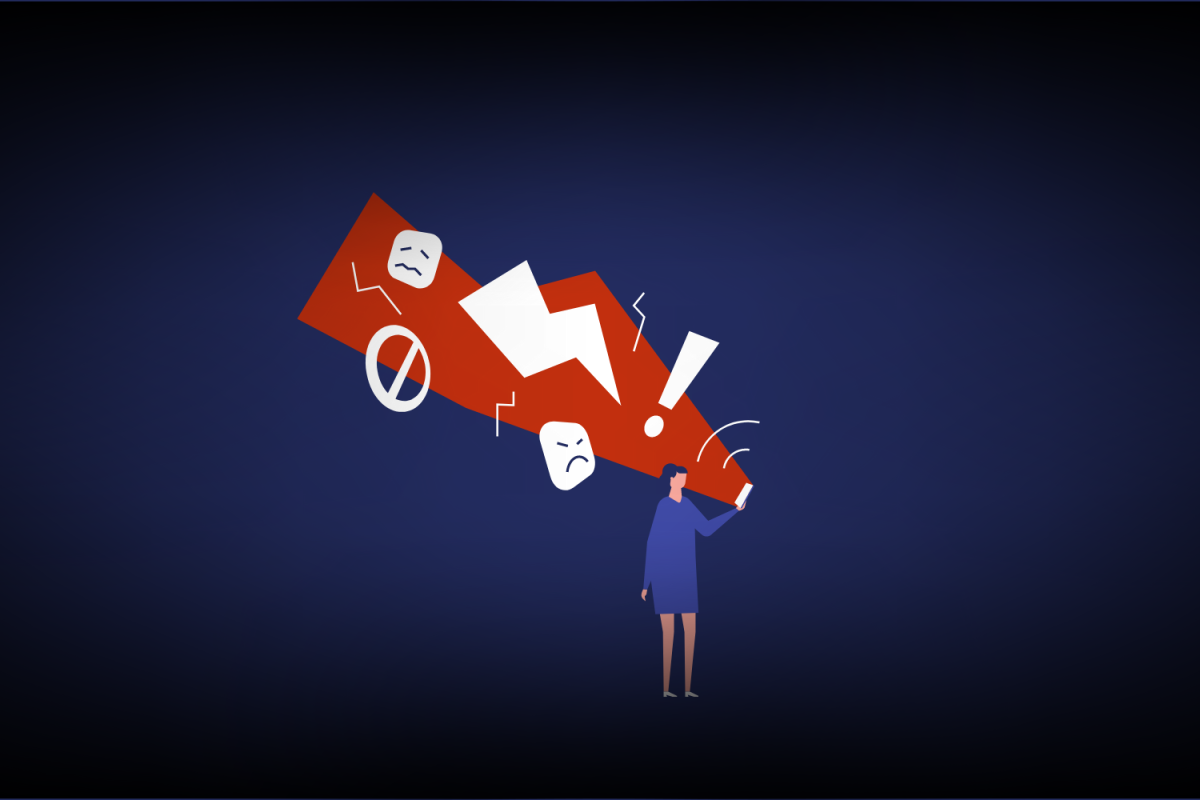Many people swear by journaling as a way to reflect and self-regulate their emotions. For students especially, there appear to be numerous benefits to taking the time to manage stress, relationships, homesickness or any of the heightened emotions felt on campus.
The startup Arrowz, founded and run by current Vanderbilt students, believes in those benefits. Since May 2024, the 13 students involved have worked to revisit approaches to emotional wellness. Led by junior Farouk Ramzan who serves as CEO, Arrowz believes its app — scheduled to release on Feb. 9 — will fill a vital, missing gap in emotion regulation. Ramzan was previously a staffer at The Hustler.
“It’s very possible that we’ve been doing a lot of therapy and journaling absolutely wrong,” Ramzan said. “There is a research paper that we linked on our research page which shows that if you just essentially — I’m gonna be not very technical — emotionally vomit on a piece of paper and just describe an emotional event in great detail, not only does it not help you, it can actually increase your SCR response.”
SCRs, or skin conductivity responses, are nervous system reactions that indirectly measure heightened emotional states.
The niche Arrowz hopes to fill is relatively uncrowded. Cognitive behavioral therapy, which is a widely respected approach, emphasizes labeling emotions clearly. Yet, it is hard to find a concise set of defined emotions, according to Ramzan. That lack of clarity inspired the app’s “emotion dictionary” which lists 15 emotions for the user to choose from.
The startup founders were inspired by the format of Python code and “The Thinker’s Toolkit,” a book by former CIA analyst Morgan Jones, Ramzan said. The app combines the psychological advice from the analyst with the simplistic format of Python to focus on causal relationships in emotions. The app’s journal pages are formatted like a blank document where you can use different directions of arrows and indents to display emotions and explore their underlying causes.
When asked about how their app could be especially relevant to Vanderbilt students, Ramzan cited a pilot study the organization conducted with 17 randomly selected first-years.
“[The students] would talk about roommate disputes, long-distance relationships, their first time being in a classroom where they feel intimidated — so basically, Vanderbilt students would use this when they’re intimidated, feel less-than, shameful or lack confidence,” Ramzan said.
The purpose of the journaling system’s format is to identify the causal chain, identify emotions using the pre-determined emotion dictionary and then break cycles of negative thoughts that are not based on reason. A large portion of the Vanderbilt student body has likely experienced a situation like those Ramzan described, and with this app comes a way for them to analyze the associated emotions more deeply.
During an interview, junior Emma Chang, who serves as Arrowz Assistant Director of Brand Design, walked through prototypes of journaling pages within the app. The interface was simple and the way the arrow symbols and the bolded emotion words appeared was well organized. The pages start with an emotion the user may be feeling, and using the arrow symbols, one can break down that feeling into its root causes and effects to arrive at the core of how a feeling. It seems easy for students to integrate the app in their daily life and quicker than traditional journaling.
“One of my New Year’s resolutions is to journal more, and it’s really hard to do so when you’re just staring at a blank page when there’s nothing to, I guess, templatize your thoughts,” Chang said.
Throughout the interview, Chang and Ramzan continued to emphasize the benefits of being a startup on campus made entirely of Vanderbilt students. Their personal connections to the app have driven them through the arduous process.
“Arrowz is, I think, a really awesome mission, and I do journal regularly,” Chang said. “It’s something that I’m really interested in, with this brain cognitive thinking and then mixed with technology and mixed with graphic design.”
The team members also have personal connections to their mission as a whole. They hope to improve other students’ well-being and emotion regulation in a similar way as their own.
“Something that was very interesting to me that I recognized about myself was that I had a negative thought pattern where every time I would do something that was risky, or I was getting very close to getting the thing that I wanted or winning at some aspect of my life, I would feel fear, and that would drive me away from finally accomplishing what I needed to accomplish,” Ramzan said. “It wasn’t until I actually put it into an Arrowz formatted note that I was able to recognize it.”
Arrowz faced a number of obstacles in their journey leading up to their app’s release. The group had to re-code their app, reimagine their organizational structure and navigate the challenging nature of starting a business on a college campus.
These challenges forced pivots at several points in the process, which other students with an interest in the startup world can similarly expect. However, Arrowz also received a lot of support from Vanderbilt professors including Dr. JoAnne Bachorowski and consulting firms like McKinsey who helped make their idea into reality.
Not always guaranteed for a startup, Arrowz has accomplished an official release of their app to app stores. Ramzan also said a member of the Arrowz team has a meeting scheduled with the Student Care Network to determine how the app may fit into their existing system of mental health services such as the UCC and the Headspace app. The startup hopes that the Student Care Network will embrace the app as a resource to further extend mental health support to students’ schedules.
Vanderbilt, and college in general, tends to be a stressful place. Students on this campus are exactly Arrowz’s target demographic as they juggle classes, relationships, internships and other involvements. The research conducted by the students involved in Arrowz claim its structure can help in considering effects before acting, making better decisions and feeling more mentally well.








